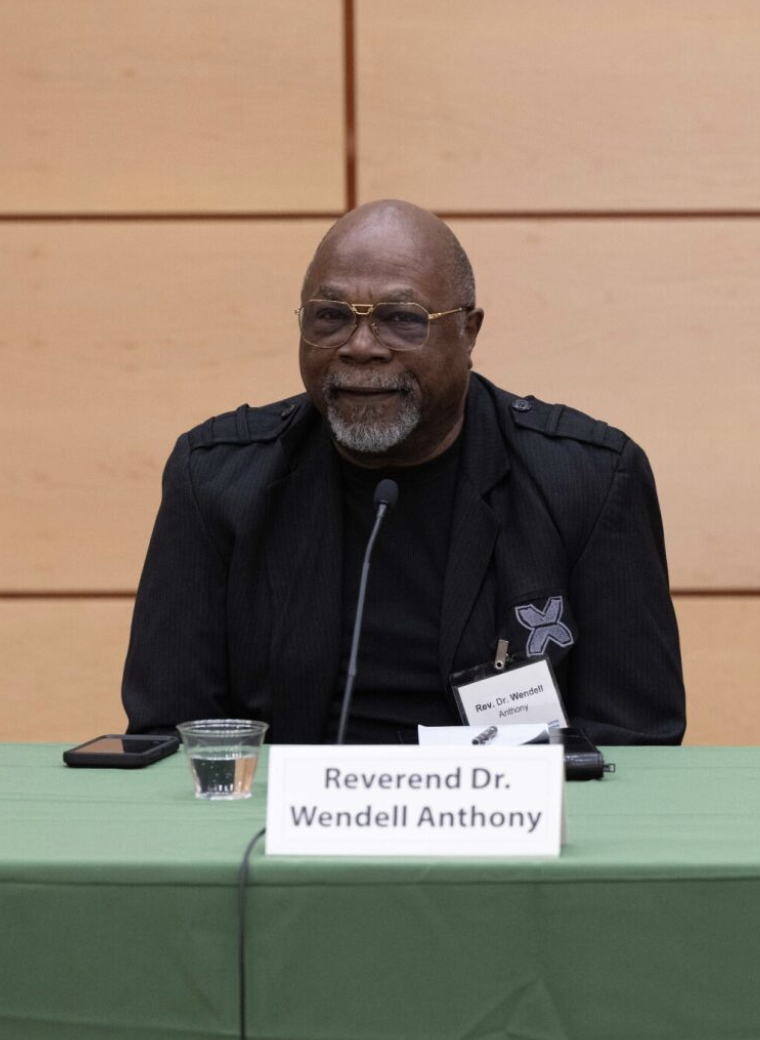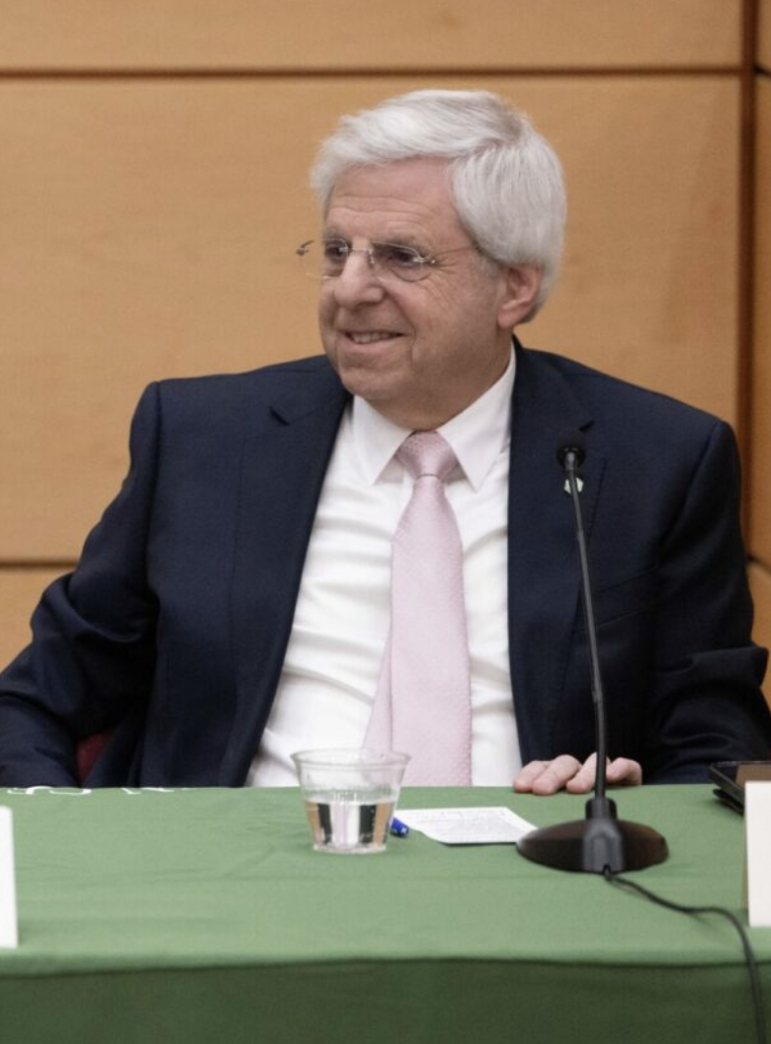
United Photo Works/American Bar Association
Rev, Wendell Anthony is the president of the Detroit branch of the NAACPBy SOPHIA CERU, ANISH TOPIWALA AND ELIJAH TAUB
Capital News Service
DETROIT – Attorneys, professors and community leaders held one common belief when they gathered for a recent conference at Wayne State University Law School: Democracy in the U.S. is at risk, especially in the context of the upcoming election.
The need for discussion arose due to the 2024 election and recent studies that concerned the American Bar Association Task Force for American Democracy, which advocates for public trust in the country’s election systems.
The Associated Press and the National Opinion Research Center at the University of Chicago partnered to create the Center for Public Affairs Research, which studies policy issues.
According to their study, 62% of American adults say that democracy in the U.S. could be at risk. The study found that 51% of those surveyed say democracy is not working.
“The next eight months will define not just the future of our country, but the future of democracy in our nation,” Secretary of State Jocelyn Benson said.
Earlier this month, the Republican National Committee sued Benson for allegedly failing to adhere to the National Voter Registration Act by having more registered voters in Michigan than there are individuals over the age of 18.
Benson has received scrutiny in the past regarding her role in handling the state’s voter roll, according to the Michigan Court Records website.
Benson said she wanted to make it clear that her priorities align with ensuring that there is total transparency in Michigan voting.
Some of the threats to democracy mentioned by Benson and other speakers at a recent conference involve barriers to voting for members of marginalized communities, misinformation and a lack of proactive education about civics.
Because of that, the ABA is moving to ensure the future of democracy through the rebuilding and restoration of civics education.
Legislation passed in December 2023 puts restrictions on challengers at polling places during upcoming elections. It was introduced because many election workers expressed concern for their safety after the 2020 election, according to the Secretary of State’s Office.
Under the new law, challengers cannot speak with or interact in any way with voters, threaten or intimidate them or election inspectors, physically touch ballots, make a challenge without good cause and disrupt or interfere with voting, ballot tabulation and other parts of the election process.
A conference panel on Restoring Civics and Civility spoke about the impact of civics curriculums on youth.
Engagement in civics doesn’t occur solely in the classroom, said Gary Torgow, who chairs Huntington Bank’s board of directors.
“Civility is a codeword for doing the right thing,” Torgow said.
The panel recommended providing young people with opportunities to participate in civics before they reach voting age.
The goal is to show students different perspectives on government that are more in-depth than high school government courses currently offer.
Torgow also said he’d like to see young people in environments where compromise is accepted, especially regarding politics and civil service.
“The largest voting block, I’m told, is that those young people are 18 to 29, and yet laws are being created and crafted to keep them from voting,” said Wendell Anthony, a pastor who is the president of the Detroit branch of the NAACP and a member of its national board of directors.
During the panel, Anthony discussed the importance of civics education and the repercussions that have resulted from a lack of proper education on the topic.
He said a daily fight against misinformation and disinformation has resulted.
“It makes the job very difficult,” he said, citing “hundreds of bills in legislative bodies across the country that we have to fight.”
Anthony said such legislation includes book bannings and gerrymandering of congressional districts.
“We fight on several fronts at the same time. We have no choice,” Anthony said. “And how do we deal with that? We engage. We engage our school districts. We must insist upon civic education.”
Anthony has worked with the NAACP to develop Take Your Soles to the Polls, a voter registration and mobilization program meant to engage youth and the Black community in the electoral process.
One organization working to improve students’ engagement with civics is the MiCivics Coalition. The group brings together educators, community leaders and nonprofit organizations to strengthen civics education.
The coalition is working to place greater emphasis on experiential learning and demystifying political participation. It’s also working to provide more resources for civic engagement in schools.
James Townsend, the director of Wayne State’s Levin Center for Oversight and Democracy and the panel moderator, repeated a remark from a student at one of the coalition’s 2022 listening tours.
“So much of what we learn isn’t real. At least it doesn’t feel real because it is so far away and focused on the federal government. While that is important, we need more opportunities to demystify and invite us into the real local and state opportunities,” the student said.

United Photo Works/American Bar Association
Gary Torgow chairs the board of directors of Huntington Bank